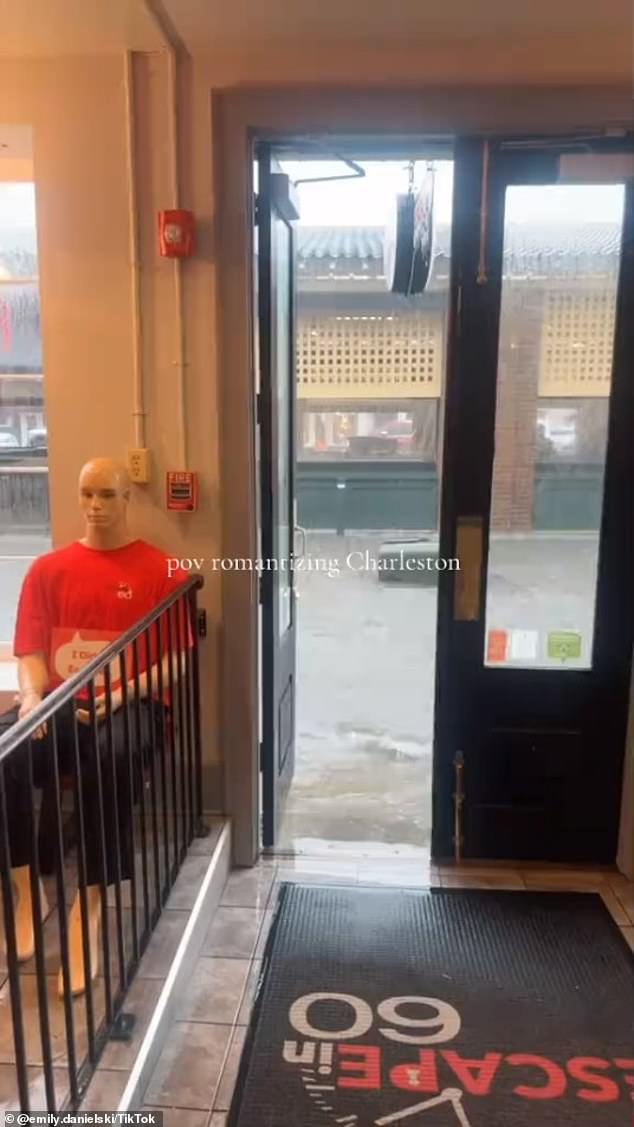Tropical Storm Debby has devastated the Carolinas, with Charleston authorities warning of unprecedented flooding as streets turn into rivers.
The weather system swirled off the coast of Georgia and North Carolina on Wednesday, its broad bands of rain piling up on inland waterways before slowly moving north.
Debby is expected to strengthen again somewhat and turn northward toward the South Carolina coast before its center makes a second landfall late Wednesday or early Thursday, weather officials said.
The meandering storm, moving at just 4 mph Wednesday morning, has already drenched coastal towns in Georgia and South Carolina with more than a foot of rain in some places, spawning tornadoes and submerging streets in waist-deep water.
Images posted on social media show Charleston streets submerged, with trash cans floating in the water and businesses inundated.
Charleston and Savannah, Georgia, were hit by flooding on Monday and Tuesday, and Charleston imposed a curfew on its downtown peninsula that lasted 32 hours before it was lifted Wednesday. Dozens of roads were closed due to flooding similar to what the city experiences several times a year due to rising sea levels.
Mayor Williams Cogswell said the closures prevented the need for water rescues and kept “Yahoos” from damaging property by driving through flooded streets and pushing water over sandbags.
Images posted on social media show Charleston streets submerged, with trash cans floating in the water and businesses inundated.
But the core of the storm was surrounded by drier air, and the worst of the rain was falling hundreds of miles to the north in eastern North Carolina before spreading into southeastern Virginia. Both states declared states of emergency.
Forecasters are warning that up to 5 inches of rain could fall from South Carolina to Vermont this weekend.
The area of greatest concern Wednesday was southeastern North Carolina, where Hurricane Matthew caused a historic billion-dollar flood in 2016. Two years later, many of those records were broken during Hurricane Florence. Both storms killed dozens of people.
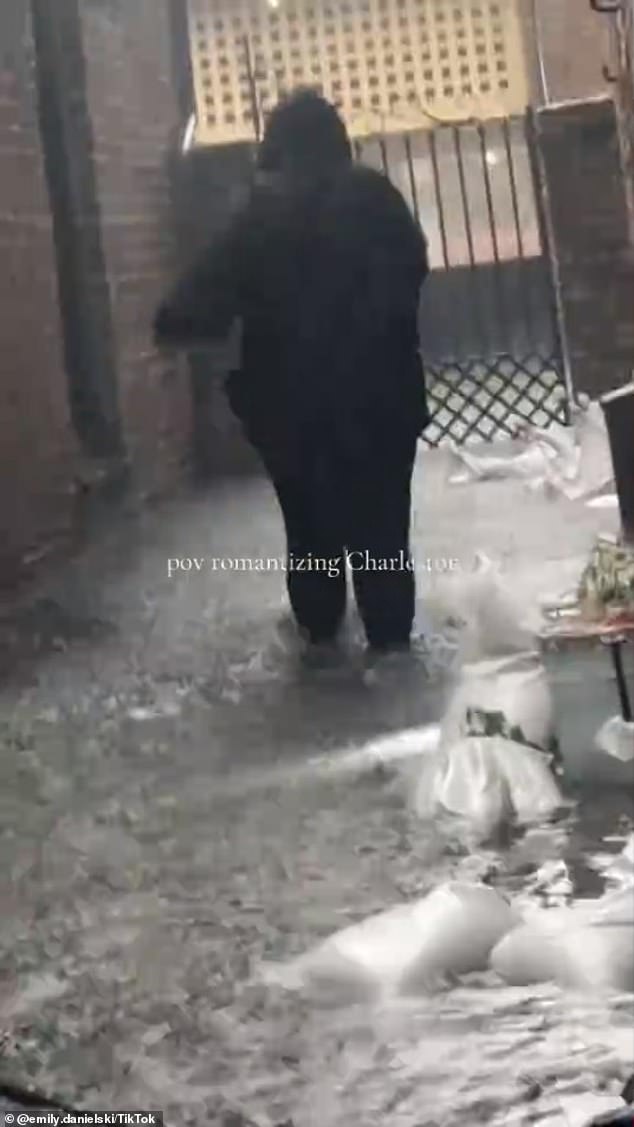
Forecasters are warning that up to 5 inches of rain could fall from South Carolina (pictured) to Vermont this weekend.
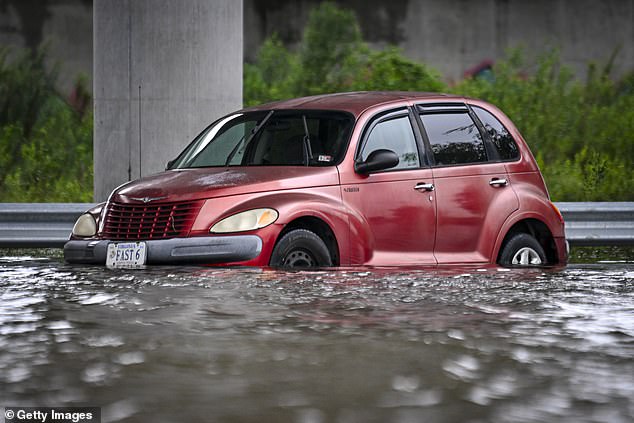
A vehicle was trapped on a flooded street due to Tropical Storm Debby on August 6 in Charleston.
The National Weather Service warned that up to 9 inches of rain could fall west of Wilmington, North Carolina, in areas that already saw heavy rain overnight.
Debby was centered about 90 miles east of Savannah on Wednesday morning, according to a bulletin from the National Hurricane Center. It had maximum sustained winds of 45 mph.
Green Pond in rural Colleton County, South Carolina, received the most rain yet, with just over 14 inches. Water overflowed from a nearby dam but did not collapse, while trees and mudslides blocked several roads, said county Deputy Fire and Rescue Chief David Greene.
Farther north in New York City, heavy storms that forecasters said were intensified by Debby flooded some streets and highways, stranding motorists. The weather service issued a flood warning until midday Wednesday for the entire city.
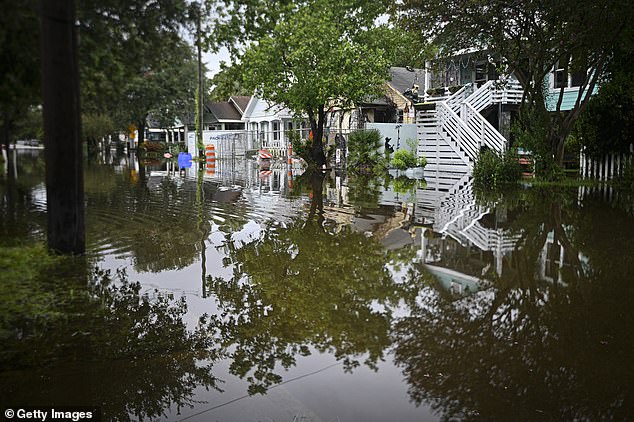
Debby’s center was located about 90 miles east of Savannah on Wednesday morning. Charleston is seen flooded.
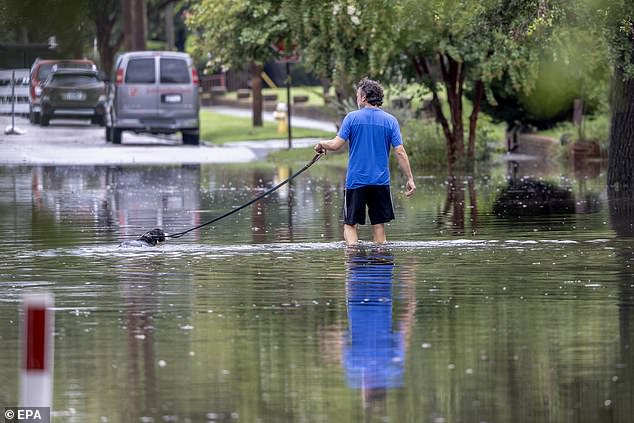
Charleston imposed a curfew on its central peninsula that lasted 32 hours before it was lifted Wednesday.
Emergency officials warned of possible flash flooding and used drones with loudspeakers in some New York City neighborhoods to alert people living in basements to be ready to flee at any time.
Severe thunderstorms hit much of New Jersey on Tuesday night, causing moderate flooding in many areas and leaving thousands of people without power.
More than two inches of rain fell in several areas, and some South Jersey communities received as much as six inches. Forecasters said the storms were exacerbated by moisture that rose from Tropical Storm Debby. No injuries were reported.
Debby made landfall as a Category 1 hurricane early Monday on Florida’s Gulf Coast.
At least six people have died due to the storm, five of them in traffic accidents or from falling trees.

